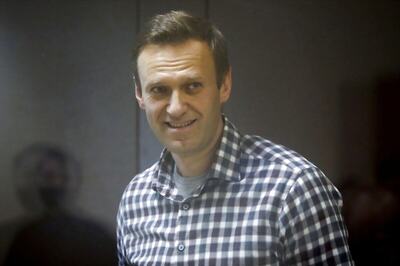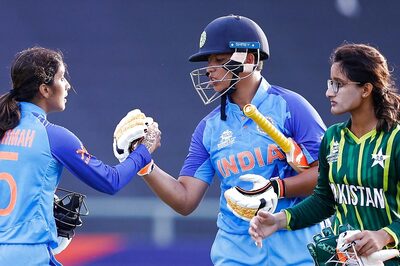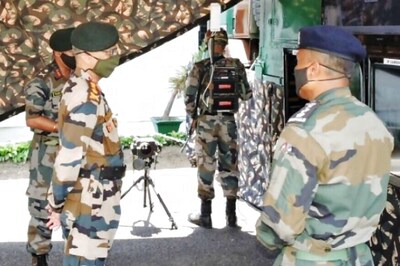
views
To be honest, it wasn't a surprise. A few months ago, we at IBN7 were telephoned by another killer on the run offering to come to the studio to 'announce' his surrender. We prevaricated, and even suggested to the man that he might be better off going to the police station. Sure enough, an hour later, the killer had surfaced in a rival studio just a few hundred metres away. Maybe next time we won't be quite so diffident. Maybe next time, it won't just be a surrender, but an actual 'murder' that takes place inside a television studio, with the obvious flash, 'Only on this channel!".
I am being dead serious. In the maddening whirl of 24 hours news television, no one is quite sure just what direction so-called 'Reality TV' will take. Why should you want to watch Bigg Boss when the real thing is here?
The year 2006 was when Reality TV on Indian news channels took off - making the car chases and courtroom dramas that have dominated American television shows seem like yesterday's tired features. A Patna professor and his teenaged lover played out their love story on prime time.
A retired IPS officer transformed himself into a real-life Radha for the television cameras. An elderly man from Madhya Pradesh brought an obscure village onto the national map by claiming that he could predict the time of his death. An item girl fought a small-time musician over a public kiss.
A village of snakes, a car that allegedly could be driven without anyone at the wheels, sea water that had turned sweet... there was no end, it seems, to the 'imagination' of the television news channels. Not to forget the 'prince' of reality television: a little boy from Haryana who, by falling into a roadside pit, ensured that his rescue became a 24x7 soap opera that appeared to bring an entire nation to a standstill.
The self-appointed media critics have been quick to jump at these stories, accusing television channels of being purveyors of 'tamasha news'. The socialist-style condescension that marks so much of television criticism is not without irony. The very newspapers and news-magazines that will write dismissively about news channels will not think twice before doing cover stories on 'Ten ways to achieve celebrity status' or spurious sex surveys on the Indian male. Bottomline: this is not a battle between 'responsible' print versus 'tabloid' television. Instead, there is symptomatic of a deeper crisis of content that pervades the entire media, print and television.
As newspapers have many more supplements, as television channels become more and more competitive, there is obvious pressure to fill news space. The results are apparent - trivia gets passed off as news, titillation of the viewer/reader takes precedence over solid information. Nor is it easy for a news editor to make the right choices. Just put yourself in the mind of a television news editor, especially in a Hindi news channel, where the competitive pressures are perhaps the greatest. What does the editor do when week after week he finds that the programmes that get him maximum ratings are those where he has 'found' - or, worse still, 'created' - some 'action', preferably live and unedited?
If the choice is between a group of professors engaged in a minor scuffle with the police, and a cabinet meeting on disinvestment, the temptation to stay with the 'action' story is obvious. After all, as the venerable British broadcaster, the late Sir Robin Day, once put it, "Television tends to be a tabloid medium, at is best, when there is war and disaster."
And yet let's not dismiss reality television as is being played out on the news channels as being necessarily harmful. What the television critics keep missing out on is that Reality TV, like all technology, is uniquely amoral. It is neither good nor bad. It simply exists, like the internet. It exists and funnels social and political power to far greater numbers of people than before.
During the Socialist Raj, Doordarshan dispensed advice through 'Krishi darshan' and the viewers were supposed to have no mind of their own. Reality TV recognises the viewer as king. Maybe this leads to sensationalism; maybe this leads to tamasha news and to tabloid bulletins. But it also empowers the viewer in a very unique way. It empowers him to sensationalise his life, to become an activist for justice and to participate in public debates as never before. In the process, it is heralding a much-needed change in traditional news 'hierarchies'.
The classical question of 'What is news?' is now being subjected to its sternest examination yet. Should every speech made by the Prime Minister or the President in Vigyan Bhavan merit the top headline of the day? Why should ministerial hand-outs and banal statements make the only 'news' in this country?
As a power shift is effected from State to civil society, should 'news' not reflect more and more of the energies of the new India? And why should individual stories of hope and despair not be prime time news?
Take for example, the Prince story. At the end of the day, the struggle of a little boy to live was not just 'of' public interest, but also was 'in' public interest. It's a story that deserved to be told, and told well. The real question is: did it deserve to be told non-stop for 48 hours as if there was no other news across the country and the world for an entire weekend?
It is also important to recognise that the interests of civil society are enhanced only when the complexities of the world around us are
unraveled. Not all these stories have 'action' or are necessarily 'viewer-friendly'. But that alone cannot minimise their importance. So, while the Indo-US nuclear deal might not seem like the ideal television story, it's a story that again must be told and vigorously debated.
Similarly, while 'little Prince in the pit' might be an ideal television news 'event', just why so many children below the age of six are still going hungry in this country as revealed in a recent study is also a story that deserves the same commitment to news gathering. The 'hunger story' may not quite get the ratings of a reality show, but to be a prisoner of ratings alone would be to destroy the very soul of
journalism.
Of course, this is easier said than done in today's market-driven media environment. But as journalists look to the future, the time for introspection has come.
Maybe in 2007, there will be more stage-managed studio surrenders, and many more stories of crime and passion that will be played out. We will cover them no doubt with frenetic energy. But maybe we need to save some of the energy to ask why murderers are choosing television studios to make their confessional statements. The answer may be interesting, if discomfiting.About the AuthorRajdeep Sardesai Rajdeep Sardesai was the Editor-in-Chief, IBN18 Network, that includes CNN-IBN, IBN 7 and IBN Lokmat. He has covered some of the biggest stories in I...Read Morefirst published:January 05, 2007, 09:21 ISTlast updated:January 05, 2007, 09:21 IST
window._taboola = window._taboola || [];_taboola.push({mode: 'thumbnails-mid-article',container: 'taboola-mid-article-thumbnails',placement: 'Mid Article Thumbnails',target_type: 'mix'});
let eventFire = false;
window.addEventListener('scroll', () => {
if (window.taboolaInt && !eventFire) {
setTimeout(() => {
ga('send', 'event', 'Mid Article Thumbnails', 'PV');
ga('set', 'dimension22', "Taboola Yes");
}, 4000);
eventFire = true;
}
});
window._taboola = window._taboola || [];_taboola.push({mode: 'thumbnails-a', container: 'taboola-below-article-thumbnails', placement: 'Below Article Thumbnails', target_type: 'mix' });Latest News
A few days ago when the alleged murderer of Meerut professor Kavita Rani decided to turn himself in to the law, he chose a television studio to enact his surrender. For the rest of the day, the 'dramatic' act was played ceaselessly on the channel, the flashing ticker a constant reminder that the channel had exclusive pictures of the surrender.
To be honest, it wasn't a surprise. A few months ago, we at IBN7 were telephoned by another killer on the run offering to come to the studio to 'announce' his surrender. We prevaricated, and even suggested to the man that he might be better off going to the police station. Sure enough, an hour later, the killer had surfaced in a rival studio just a few hundred metres away. Maybe next time we won't be quite so diffident. Maybe next time, it won't just be a surrender, but an actual 'murder' that takes place inside a television studio, with the obvious flash, 'Only on this channel!".
I am being dead serious. In the maddening whirl of 24 hours news television, no one is quite sure just what direction so-called 'Reality TV' will take. Why should you want to watch Bigg Boss when the real thing is here?
The year 2006 was when Reality TV on Indian news channels took off - making the car chases and courtroom dramas that have dominated American television shows seem like yesterday's tired features. A Patna professor and his teenaged lover played out their love story on prime time.
A retired IPS officer transformed himself into a real-life Radha for the television cameras. An elderly man from Madhya Pradesh brought an obscure village onto the national map by claiming that he could predict the time of his death. An item girl fought a small-time musician over a public kiss.
A village of snakes, a car that allegedly could be driven without anyone at the wheels, sea water that had turned sweet... there was no end, it seems, to the 'imagination' of the television news channels. Not to forget the 'prince' of reality television: a little boy from Haryana who, by falling into a roadside pit, ensured that his rescue became a 24x7 soap opera that appeared to bring an entire nation to a standstill.
The self-appointed media critics have been quick to jump at these stories, accusing television channels of being purveyors of 'tamasha news'. The socialist-style condescension that marks so much of television criticism is not without irony. The very newspapers and news-magazines that will write dismissively about news channels will not think twice before doing cover stories on 'Ten ways to achieve celebrity status' or spurious sex surveys on the Indian male. Bottomline: this is not a battle between 'responsible' print versus 'tabloid' television. Instead, there is symptomatic of a deeper crisis of content that pervades the entire media, print and television.
As newspapers have many more supplements, as television channels become more and more competitive, there is obvious pressure to fill news space. The results are apparent - trivia gets passed off as news, titillation of the viewer/reader takes precedence over solid information. Nor is it easy for a news editor to make the right choices. Just put yourself in the mind of a television news editor, especially in a Hindi news channel, where the competitive pressures are perhaps the greatest. What does the editor do when week after week he finds that the programmes that get him maximum ratings are those where he has 'found' - or, worse still, 'created' - some 'action', preferably live and unedited?
If the choice is between a group of professors engaged in a minor scuffle with the police, and a cabinet meeting on disinvestment, the temptation to stay with the 'action' story is obvious. After all, as the venerable British broadcaster, the late Sir Robin Day, once put it, "Television tends to be a tabloid medium, at is best, when there is war and disaster."
And yet let's not dismiss reality television as is being played out on the news channels as being necessarily harmful. What the television critics keep missing out on is that Reality TV, like all technology, is uniquely amoral. It is neither good nor bad. It simply exists, like the internet. It exists and funnels social and political power to far greater numbers of people than before.
During the Socialist Raj, Doordarshan dispensed advice through 'Krishi darshan' and the viewers were supposed to have no mind of their own. Reality TV recognises the viewer as king. Maybe this leads to sensationalism; maybe this leads to tamasha news and to tabloid bulletins. But it also empowers the viewer in a very unique way. It empowers him to sensationalise his life, to become an activist for justice and to participate in public debates as never before. In the process, it is heralding a much-needed change in traditional news 'hierarchies'.
The classical question of 'What is news?' is now being subjected to its sternest examination yet. Should every speech made by the Prime Minister or the President in Vigyan Bhavan merit the top headline of the day? Why should ministerial hand-outs and banal statements make the only 'news' in this country?
As a power shift is effected from State to civil society, should 'news' not reflect more and more of the energies of the new India? And why should individual stories of hope and despair not be prime time news?
Take for example, the Prince story. At the end of the day, the struggle of a little boy to live was not just 'of' public interest, but also was 'in' public interest. It's a story that deserved to be told, and told well. The real question is: did it deserve to be told non-stop for 48 hours as if there was no other news across the country and the world for an entire weekend?
It is also important to recognise that the interests of civil society are enhanced only when the complexities of the world around us are
unraveled. Not all these stories have 'action' or are necessarily 'viewer-friendly'. But that alone cannot minimise their importance. So, while the Indo-US nuclear deal might not seem like the ideal television story, it's a story that again must be told and vigorously debated.
Similarly, while 'little Prince in the pit' might be an ideal television news 'event', just why so many children below the age of six are still going hungry in this country as revealed in a recent study is also a story that deserves the same commitment to news gathering. The 'hunger story' may not quite get the ratings of a reality show, but to be a prisoner of ratings alone would be to destroy the very soul of
journalism.
Of course, this is easier said than done in today's market-driven media environment. But as journalists look to the future, the time for introspection has come.
Maybe in 2007, there will be more stage-managed studio surrenders, and many more stories of crime and passion that will be played out. We will cover them no doubt with frenetic energy. But maybe we need to save some of the energy to ask why murderers are choosing television studios to make their confessional statements. The answer may be interesting, if discomfiting.




















Comments
0 comment